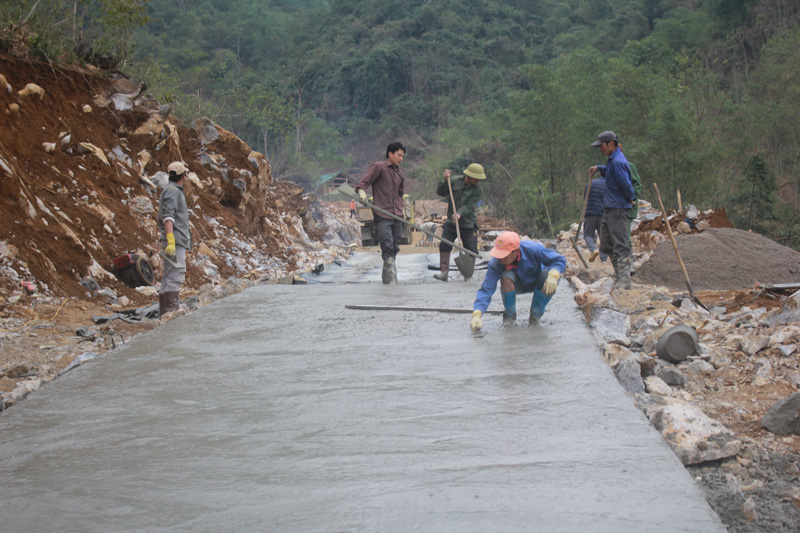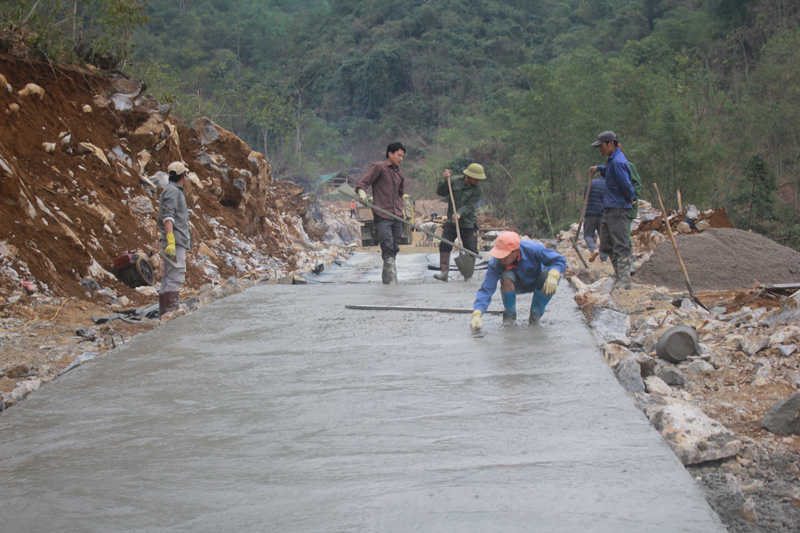



A
road in Nhap hamlet’s Tan Huong resettlement area was cemented to facilitate
travelling during the Lunar New Year (Tet) holiday.
In October 2017, a strong flood left 52 local households homeless.
Two days after the ordeal, 25 families with 108 people were moved to the Tan
Huong resettlement area. Remaining residents stayed in the Ren area and made
efforts to surmount flood consequences.
As Tet is just a few days left, work to stabilise local life has
been intensified. In Tan Huong, people now have access to electricity and clean
water; land has been distributed to households; and 50 percent of roads have
been cemented. With support from the Dong Ruong authorities and Da Bac armed
forces, about 20 families have been relocated to build their new homes. Those
whose houses were completely destroyed during the flood will secure temporary
shelters on the holiday so no one has to live in tents.
We visited a kindergarten in Nhap hamlet. Ha Thi Oanh, a teacher
here, said: "the 150sq.m facility has just been propped up by a steel framework
with a metal roof. It has operated for two weeks with 17 pupils from Tan Huong.
About ten children in the Ren area are studying in villagers’ houses due to
difficulties in transport. Charity donations and food taken from our main
kindergarten in downtown Dong Ruong are keeping our children warm and not
hungry. Travelling by water is a huge challenge.”
On a small corner of the hamlet, a little shop run by Xa Thi Nhiet
reflects the vitality of a new land. Nhiet said: "We lost our previous shop to
the flood. We have to start everything again with difficulties. We hope the
authorities will support people like us so that we will have a warm Tet and work
together to overcome our damage.”
People in Tan Huong area have so far secured access to
electricity, housing, transportation, and education. Life is more difficult in
the Ren area, where more than 100 people are living without electricity and
many damaged roads remain unrepaired. Pupils in both areas have to study in
other areas.
Head of Nhap hamlet Quach Cong Hung said: "The biggest wish of Ren
residents is to no longer have to use candles and oil-fueled lamps on Tet.
People in Nhap hamlet expect more assistance in terms of infrastructure
improvement and sustainable livelihoods.” /.